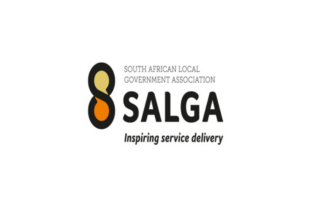The South African Institution of Civil Engineering (SAICE) acknowledges the difficulties presented to Finance Minister Enoch Godongwana in preparing the national budget under the current economic circumstances in which the country finds itself.
As with most budgets, it is the epitome of the ‘Curates Egg’, good in part for some and not so good for others. Infrastructure is at the centre of public and economic wellbeing. The Minister pointed out that “Infrastructure investments lay the foundation for inclusive and sustainable growth; they address supply-side constraints; and expand access to basic services.” Overall, the public sector is projected to spend R903 billion on infrastructure over the medium term. The largest portion of this, around R448 billion, will be spent by state-owned companies, public entities and through public-private partnerships. There is an allocated spend of R351.1 billion for transport and logistics, including for SANRAL to improve the road infrastructure network. While R132.5 billion is the planned spend for water and sanitation over the next three years, mainly by the water boards. While the Minister expects others to put ‘meat on the bone’ and allocated R14 billion over the medium term to fight crime and corruption, we expected more detail to address the critical short comings , and the effective rollout and implementation of:- Proper procurement processes in construction
- Rooting out of corruption – how will it be done?
- The effective rollout of infrastructure development
- The protection of infrastructure during construction and beyond
- Unpacking South Africa’s employment crisis
While building infrastructural capacity, allocations must be made to ensure that civil infrastructure investment and maintenance are monitored and audited. Instead of infrastructure deteriorating a few months after completion, why do we not build to last? We need to work on standardization for durable infrastructure.
Further, SAICE welcomes the investment allocation for relief due to recent floods. The Minister said that for recent floods and the national disaster declared in various provinces, R695 million is available in this financial year for immediate relief. A further R1 billion will be available next year. With such events becoming more frequent, we must take cognizance of climate change in our infrastructure planning, construction techniques and maintenance activities to mitigate the effects of flooding on a large scale by embracing quality infrastructure that the nation can depend upon. We strongly believe that to enable the development of a greater engineering industry and to push forward the country’s infrastructure, the private sector and all South Africans must continue to hold the South African government accountable with regard to how it will provide society with environmentally and economically sustainable infrastructure. It is critical to protect and enhance physical infrastructure because of its daily existence and our common prosperity as a nation. It is also welcomed to see the investments being made in enabling infrastructure development in rural communities, such as Phase 2 of the Welisizwe Rural Bridges programme, which will see the installation of 96 bridges annually to enable rural communities in the Eastern Cape, KwaZulu-Natal, Mpumalanga, Limpopo, Free State, and North West provinces to safely access schools and workplaces. A further R66 billion has been allocated to social development over the medium term, and R30 billion will be used for inflation-linked increases for other social grants, including child support. Enabling such services and relief will have a positive impact on improving the livelihoods of communities, including women and children, particularly in rural areas. South Africa’s growth, productivity and competitiveness as a global entity relies heavily on its economic infrastructure – from the national level through to provinces and down to the local level. Good social infrastructure provides opportunities for social mobility while improving the length and quality of human life. The provision of public infrastructure is a core responsibility of a functional and thriving State, and its responsible use is a corresponding duty of citizens, as pointed out in our recent Infrastructure Report Card. We have heard President Cyril Ramaphosa in the State of the Nation Address, supplemented by the budget allocations from the National Treasury – but as an industry body representing over 16 000 civil engineers, technicians and technologists, we strongly call on government for proper implementation and to root out corruption for all these efforts to be successful. Meanwhile, in terms of Eskom, the Minister explained that because of the structure of the debt relief, Eskom will not need further borrowing during the relief period. Government stated that will finance the arrangement through the R66 billion baseline provision announced in the 2019 Budget, and R118 billion in additional borrowings over the next three years. The Minister stated that it would be accompanied by strict conditions to safeguard public funds. In light of this, who will be ensuring these conditions are being managed? What is the role of the Minister of Electricity in regard to this? We have previously questioned what the mandate of the Minister of Electricity and the board of Eskom is. Without the authority to effect change in operations, nothing will change. Therefore, there needs to be a clear mandate on whose job it is to oversee the restructuring of Eskom, and whose job it is to oversee the operation focusing essentially on eradicating the rampant syndicated crime impacting the performance of the coal-fired power stations. The expression that comes to mind in brief: “too many cooks”.*Press Release published as recieved from SAICE







